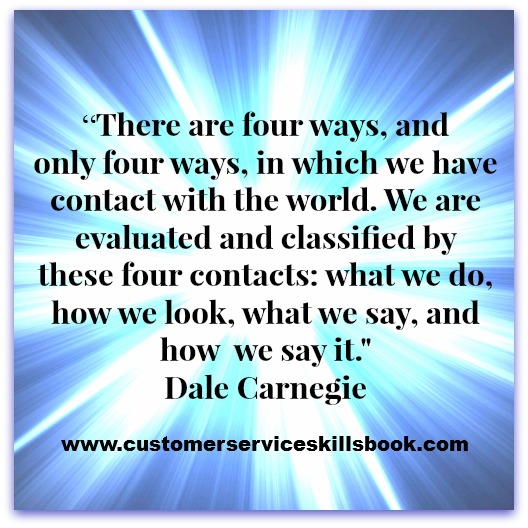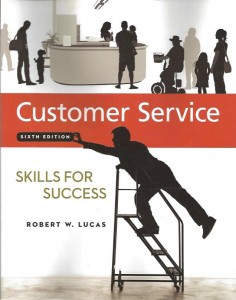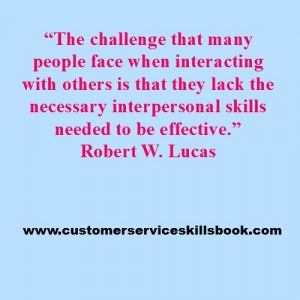Strengthening Communication with Customers – Tip#4
Be Personable
Customers who feel that they have an active role in and control of a service-provider interaction often feel more important and valued. Improved interpersonal communication can lead to higher levels of customer satisfaction and retention and reduced stress for you and your co-workers.
Take advantage of the following strategy to build stronger relationships with your internal and external customers by being personable.
Service providers who tend to be “all business” or robotic in their service delivery often fail to get high marks from customers. Even if you are knowledgeable, are efficient, and follow all the rules in delivering service, you could end up with a customer who is dissatisfied if you do not demonstrate some degree of humanness. This means connecting on a personal level and showing compassion and concern for your customers and their emotional needs. For example, if someone tells you during an interaction that he or she is celebrating a special event, take the time to ask, explore the topic briefly, or relate a personal example. If it is the customer’s child’s birthday, you might wish the child an enthusiastic “Happy Birthday” and ask the child how old he or she is or what the child hopes to get for his or her birthday. Depending on the type of business you are in, you might even offer a small present (e.g., a free dessert, a piece of candy, a toy, a coupon for a discount on his or her next visit, or whatever might be appropriate). At the least, upon concluding the transaction, with the child well or congratulate him or her one more time.
For specific strategies on more effective communication with your customers, get a copy of Customer Service Skills for Success and Please Every Customer: Delivering Stellar Customer Service Across Cultures.
About Robert W. Lucas
Bob Lucas has been a trainer, presenter, customer service expert, and adult educator for over four decades. He has written hundreds of articles on training, writing, self-publishing, and workplace learning skills and issues. He is also an award-winning author who has written thirty-seven books on topics such as, writing, relationships, customer service, brain-based learning, and creative training strategies, interpersonal communication, diversity, and supervisory skills. Additionally, he has contributed articles, chapters, and activities to eighteen compilation books. Bob retired from the U.S. Marine Corps in 1991 after twenty-two years of active and reserve service.
Make Money Writing Books: Proven Profit Making Strategies for Authors by Robert W. Lucas at Amazon.com.
The key to successfully making money as an author and/or self-publisher is to brand yourself and your company and to make yourself and your book(s) a household name. Part of this is face-to-face interaction with people at trade shows, library events, book readings, book store signings, blogging or guest blogging on a topic related to their book(s). Another strategy involves writing articles and other materials that show up online and are found when people search for a given topic related to a topic about which the author has written.
If you need help building an author platform, branding yourself and your book(s) or generating recognition for what you do, Make Money Writing Books will help. Bob’s popular book addresses a multitude of ideas and strategies that you can use to help sell more books and create residual and passive income streams. The tips outlined in the book are focused to help authors but apply to virtually any professional trying to increase personal and product recognition and visibility.
In my book Customer Service Skills for Success, I define customer service as “the ability of knowledgeable, capable, and enthusiastic employees to deliver products and services to their internal and external customers in a manner that satisfies identified and unidentified needs and ultimately results in positive word-of-mouth publicity and return business.”










